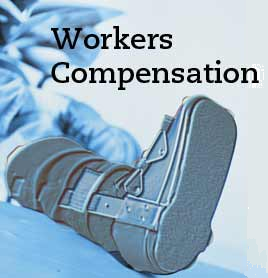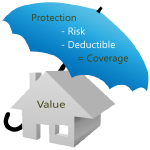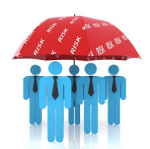The Insurance Industry has been Slow to Adapt to Technology
Many people within the insurance industry say the industry has not evolved since the Industrial Revolution. In some ways that is a true statement. With the introduction of several different forms of technology the insurance industry is advancing into the twenty first century. Technology has and will play a large part of the insurance industry for the foreseeable future. The insurance industry has been slow to adapt, but there the best companies are now using technology to gain a competitive advantage in both personal and commercial insurance.

Types of Technology Impacting the Insurance Industry
Wearables
Wearables have evolved far beyond wristwatches and clip-on GPS trackers. Some companies are adding smart vests and even boot inserts to monitor employees. What businesses are monitoring include heart rate, body temperature, and even the sweat rate. This helps businesses prevent employees from suffering from heat stroke or hypothermia. Motion sensors are being used to detect when a worker has fallen or in some instances when an employee has not moved for a period of time. These wearable technologies can alert supervisors or nearby colleagues of a potential danger.
Drone Technology
Insurance companies are using drones in a number of ways. One of the best ways carriers are using drones is to speed up the claims process in the aftermath of a natural disaster. Carriers will send an underwriter to an area and inspect multiple damaged properties with the drone saving an enormous amount of time in the claims process. In some instances, the underwriter can begin to process a claim even before the owner of the property is allowed back in to the area. In the future, many within the industry think the industry could use drones to view a property periodically throughout the year to record the condition of a property prior to a claim. Like most things with technology and the insurance industry, this will create new types of risks and privacy issues.
Autonomous Vehicles
Autonomous vehicles bring many different issues to the insurance industry. As autonomous vehicles work now, the insurance is held by the owner of the car. In the future, as autonomous vehicles move into other areas of the economy, the insurance industry will have to develop ways to deal with new types of risks. When a company like Uber or Lyft begin offering rides in unmanned vehicles, the liability insurance required will change. When a company like Amazon begins using unmanned vehicles for deliveries; the insurance industry, along with the states and federal government, will have to adjust how the liability involved in these vehicles develops.

How is Technology Impacting the Insurance Industry
Underwriting and Claims are quicker and more efficient
Insurance is a very specific product to sell. The price for one business is dramatically different than another business for a number of reasons. Insurance agents need a lot of information about a business before they can offer a quote on premium. There are a number of reasons for this and it is a frustration for both agents, underwriters, and business owners looking for coverage. Technology is helping to streamline this process.
Technology adoption is helping to better identify fraud and other crimes
There are numerous ways insurance companies are using technology to improve the insurance process for all policyholders. No where is that more evident than when it comes to policing fraud. Wearables and smart home devices are helping insurance companies determine when someone is committing arson or when someone is lying about a crime. A good example of how technology is being used to cover up a crime is in Arkansas in 2015, man was suspected of murder. Using the Amazon Echo and the smart water heater, prosecutors found that a large amount of water was used in the early hours of the morning on the night of the murder. The prosecutors used this as circumstantial evidence to show the man was covering up the crime.

Technology Requires New Types of Coverage
Cyber Insurance
Cyber insurance is a necessary coverage for most business need in 2019. There are three types of policies that businesses may need. Cyber Liability and Data Breach Coverage are the two policies most businesses need and they are almost exclusively sold in tandem. The additional coverage some businesses need related to cyber insurance is Technology Errors and Omissions.
Data Breach Insurance deals with the first party damages to you and your business. Cyber liability deals with the third party liability a business faces to other people damaged by a data breach. Technology Errors and Omissions deals with businesses that provide or sell technology services and products. Thus far, carriers have had trouble understanding the risk factors related to cyber. For most policies, the carriers have years of historical loss information to determine the probability of claims. Most businesses have been operating over the internet for less than 10 years and a majority of that time they did not carry cyber insurance. Because of this lack of data, most insurance carriers either do not have a strong appetite for this coverage or they keep premium relatively high.







 A lot of insurance carriers have restricted coverage for non-profit and charitable organizations due to a large amount of historical claims and their potential exposure from volunteers serving these organizations. A few carriers have taken a different approach to non-profits and created programs designed specifically to the unique needs of these businesses. Below is a list of six coverages most non-profits will need.
A lot of insurance carriers have restricted coverage for non-profit and charitable organizations due to a large amount of historical claims and their potential exposure from volunteers serving these organizations. A few carriers have taken a different approach to non-profits and created programs designed specifically to the unique needs of these businesses. Below is a list of six coverages most non-profits will need.

 Owners and Officers Coverage is for defense costs and damages (awards and settlements) arising out of wrongful act allegations and lawsuits brought against an organization’s board of directors and/or officers. Securing this coverage allows your officers to sit on your board and comfortably know they are not going to be liable for the actions of the organization.
Owners and Officers Coverage is for defense costs and damages (awards and settlements) arising out of wrongful act allegations and lawsuits brought against an organization’s board of directors and/or officers. Securing this coverage allows your officers to sit on your board and comfortably know they are not going to be liable for the actions of the organization.

